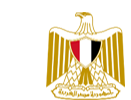International Literacy Day
Since 1967, the annual celebrations of International Literacy Day (ILD)
have taken place on 8 September around the world to remind policy-makers,
practitioners, and the public of the critical importance of literacy for
creating more literate, just, peaceful, and sustainable society.
Literacy is a fundamental human right for all. It opens the door to the
enjoyment of other human rights, greater freedoms, and global citizenship.
Literacy is a foundation for people to acquire broader knowledge, skills,
values, attitudes, and behaviors to foster a culture of lasting peace based on
respect for equality and non-discrimination, the rule of law, solidarity,
justice, diversity, and tolerance and to build harmonious relations with
oneself, other people and the planet. Despite progress, at least 739 million
youth and adults worldwide still lack basic literacy skills in 2024. At the
same time, 4 in 10 children are not reaching minimum proficiency in reading,
and 272 million children and adolescents were out of school in 2023.
This year, International Literacy Day (ILD) will be celebrated under the
theme of “Promoting literacy in the digital era.”
Digitalization has been changing ways in which we learn, live, work and socialize,
in both positive and negative ways, depending on how we engage with it. While
digital tools can help expand learning opportunities for marginalized groups,
including 739 million young people and adults who lack basic literacy skills,
this digital shift also risks creating double marginalization – exclusion not
only from traditional literacy learning but also from the benefits of the
digital age. Digitalization also raises other concerns, including privacy
issues, privacy, digital surveillance, reinforced biases, ethics, the risk of
passive consumption, and environmental impacts.
Literacy is a key for making these transformations inclusive, relevant
and meaningful. Beyond reading and writing on paper, literacy in the digital
era enables people to access, understand, evaluate, create, communicate and
engage with digital content safely and appropriately. Literacy is also central
for fostering critical thinking, discerning credible information and navigating
complex information environments.
On 8 September, ILD2025 will celebrate progress in literacy at the
global, regional, national and local levels. It will be an opportunity for
critical reflection on what literacy means today, and how literacy teaching and
learning, programs and policies are designed, managed and monitored in this
digital era.
In addition, ILD2025 will spotlight effective policies and interventions
that promote literacy as a common good and a human right – and as a lever for
empowerment and transformation to build more inclusive, just and sustainable
societies.


